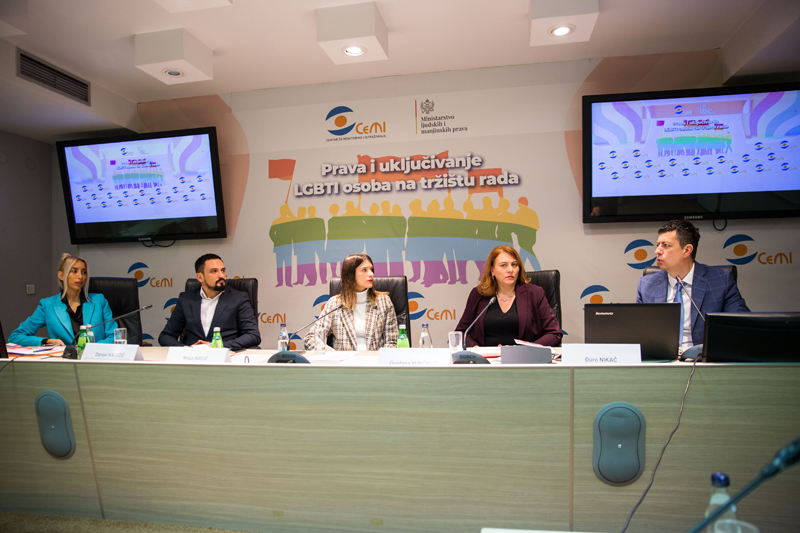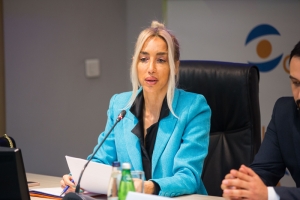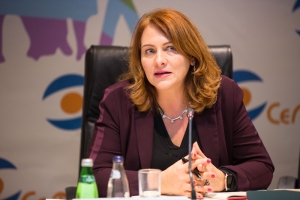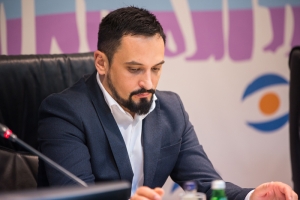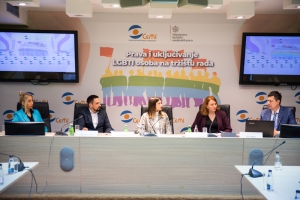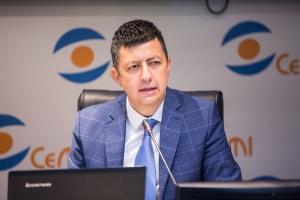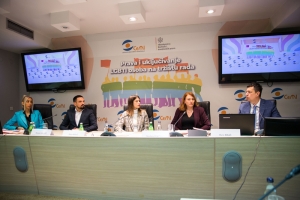Employers should promote the prohibition of discrimination against LGBTI persons in the workplace, and encourage respect for diversity through public statements of top management in the organization, institution and company.
This was announced at the round table "Rights and inclusion of LGBTI persons in the labor market", which was organized by the Center for Monitoring and Research (CeMI) within the project "Contribution to the inclusion of LGBTI persons in the labor market".
The project coordinator at CeMI, Maja Bjelic, said that the project aims to contribute to increasing the level of respect for the human rights of members of the LGBTI population in Montenegro.
"The contribution to the achievement of this goal is reflected in the reduction of the level of discrimination against LGBTI persons in employment, through the set of project activities. The direct target group of the project is the public and private sector in Montenegro, while the final beneficiaries of the project are all citizens of Montenegro. The indirect target group is the LGBTI population, whose goal is to ensure the enjoyment of a greater degree of respect for human rights and equality during employment," said Bjelic.
She reminded that in order to analyze the situation as comprehensively as possible, CeMI conducted qualitative and quantitative research during the project, and that the qualitative research is an integral part of the guide for employers on the rights and inclusion of LGBT persons in the labor market, which was presented at the round table.
"In order to encourage the acceptance of LGBTI persons in business environments, direct communication and education of relevant stakeholders, CeMI organizes meetings with representatives of the public and private sectors, as well as with employees in their personnel department, during which methods of inclusion of LGBTI persons during employment are presented and recommendations are advocated for the improvement of community rights in this area", said Bjelic.
The representative of the Ministry of Human and Minority Rights, Branka Drecun, said that the project "Contribution to the inclusion of LGBTI persons in the labor market" was recognized as a quality contribution to the implementation of the policy of the Government of Montenegro in the area of protection and improvement of the quality of life of LGBTI persons.
"LGBTI people in Montenegro face the greatest number of problems when it comes to exercising human rights in the field of employment. Very often they are faced with stigma and discrimination in almost all aspects of their lives," said Drecun.
She said that the employment of LGBTI persons and their social inclusion are causally connected.
"Without a greater degree of employment of LGBTI persons, it is not possible to achieve a greater degree of social inclusion of members of this marginalized group, so education and encouragement of both public and private economic entities is of key importance for solving the problem not only of employment of LGBTI persons, but also for their acceptance by society," said Drecun.
Executive co-director of the Association for LGBTI Equal Rights for the Western Balkans and Turkey, Danijel Kalezic, speaking about the recommendations aimed at greater inclusion of LGBTI persons in the labor market, said that it would be desirable for the organization/institution/company, especially the council, to have a special mechanism for anonymous reporting of discrimination.
"It is very important that employers avoid questions of a discriminatory nature during job interviews. Such questions include intrusively seeking information related to: age, genetic characteristics, place of birth, country of origin, citizenship, disability, gender, sex, sexual orientation, partnership status, familial status or parentage, race, color or ethnicity, religion or belief", stated Kalezic.
He pointed out that it is very important that employers advertise and really provide the same conditions to all candidates, including those from the LGBTI community (salary, working hours, vacation), for the same job, and that on a systematic and a way available to everyone, they encourage progress in the organization/institution/company through the reward system, the possibility of advancement.
"Employers should introduce programs that would entail the mandatory participation of the entire organization/institution/company (in several groups, by sector, etc.), and such programs would focus on educating all employees about respect for the rights of the LGBTI community and their inclusion, through specially created trainings, workshops, seminars," said Kalezic.
The representative of the Employment Agency of Montenegro, Gordana Vukcevic, pointed out that the Law on mediation in employment and rights during unemployment prohibits any form of discrimination.
"It states that the principle of gender equality and affirmative action aimed at vulnerable groups on the labor market must be affirmed." "The institute does not keep special records on persons who are members of the LGBTI population, because according to our regulations, this is not a mandatory record," stated Vukcevic.
She pointed out that the employer must not ask the question when it comes to gender, religion, nationality and other preferences.
"However, in practice, we know that this is not the case. One of the questions that penetrates deeply into the intimacy of every person is whether and when they plan to have children. It is necessary to strengthen the awareness of employers and employees, as well as of all citizens. If we all refuse to answer that question, that question will become unnecessary and the employers themselves will stop asking that kind of question," said Vukcevic.
The representative of the Administration for Human Resources, Djuro Nikac, said that there is constant talk about the improvement of the normative framework, which, as he stated, on the other hand, is experiencing rapid degradation.
"The Human Resources Administration had the obligation to take into account the proportionate representation of ethnic, minority and other minority groups in state bodies during recruitment, which was extremely important for us. The LGBTI population was not included in that norm. However, with the changes in the law, we lost that authority," said Nikac.
The round table is one of the activities of the project "Contribution to the inclusion of LGBT persons on the labor market", which is implemented by CeMI, and is financially supported by the Ministry of Human and Minority Rights of Montenegro.
